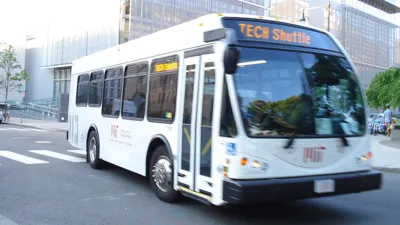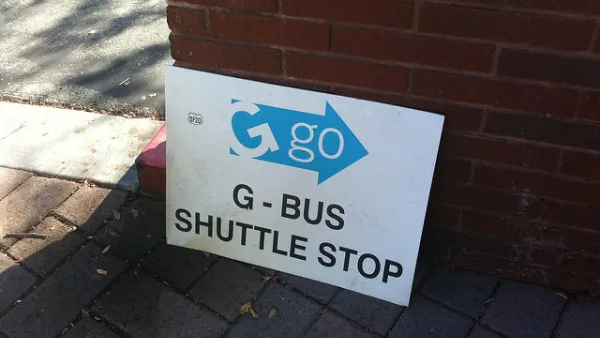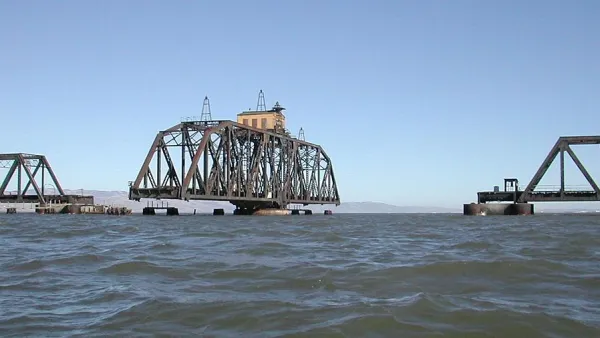A San Francisco Chronicle editorial supports the decision by the Municipal Transportation Agency to 'bow' to complaints from residents about the large tech buses by reducing their stops in their neighborhoods even if it means increasing car trips.

"Bowing to complaints from residents in congested neighborhoods like the Mission, the San Francisco Municipal Transportation Agency has been regulating the stops for the large buses that ferry technology workers to campuses on the Peninsula," editorializes the paper.
Moving shuttle stops from smaller streets onto larger ones will reduce neighborhood congestion and improve quality of life.
Moving the stops by only a few blocks asks tech workers to make only the tiniest of sacrifices.
A post on Monday indicates that "fewer Facebook employees are taking the shuttle and choosing to drive instead—according to a recent Facebook report to the city of Menlo Park."
According to that report, "on May 9, trips entering Facebook’s complex at One Hacker Way increased by about 16 percent to 12,400 compared with May 8 of last year.
"It’s unfortunate that more workers are choosing to drive to work," continues the editorial. "But the fault here is with those workers. It’s not with the city transportation agency."
In other words, blame commuters for resorting to their cars rather than walking up to half a mile to new bus stops after the transportation agency took away their old stops.
The bias against the city's technology workforce that commutes to the Peninsula and South Bay is acknowledged in the editorial's conclusion. About one-third of Facebook’s employees live in San Francisco, according to Wendy Lee's earlier article in The Chronicle.
If there was a bias in this case, it was that the agency chose to weigh more heavily complaints from the San Francisco neighborhoods than the convenience of technology companies who aren’t based within the city’s limits. San Francisco residents are the ones who pay the SFMTA’s bills, so that’s right and fair.
It would seem that the paper overlooks the fact that commuters to Facebook and other tech companies are San Francisco residents as well.
More on how the technology shuttles have reshaped Silicon Valley's workforce here.
FULL STORY: SFMTA has the right compromise on tech buses

Analysis: Cybertruck Fatality Rate Far Exceeds That of Ford Pinto
The Tesla Cybertruck was recalled seven times last year.

National Parks Layoffs Will Cause Communities to Lose Billions
Thousands of essential park workers were laid off this week, just before the busy spring break season.

Retro-silient?: America’s First “Eco-burb,” The Woodlands Turns 50
A master-planned community north of Houston offers lessons on green infrastructure and resilient design, but falls short of its founder’s lofty affordability and walkability goals.

Test News Post 1
This is a summary

Analysis: Cybertruck Fatality Rate Far Exceeds That of Ford Pinto
The Tesla Cybertruck was recalled seven times last year.

Test News Headline 46
Test for the image on the front page.
Urban Design for Planners 1: Software Tools
This six-course series explores essential urban design concepts using open source software and equips planners with the tools they need to participate fully in the urban design process.
Planning for Universal Design
Learn the tools for implementing Universal Design in planning regulations.
EMC Planning Group, Inc.
Planetizen
Planetizen
Mpact (formerly Rail~Volution)
Great Falls Development Authority, Inc.
HUDs Office of Policy Development and Research
NYU Wagner Graduate School of Public Service



























